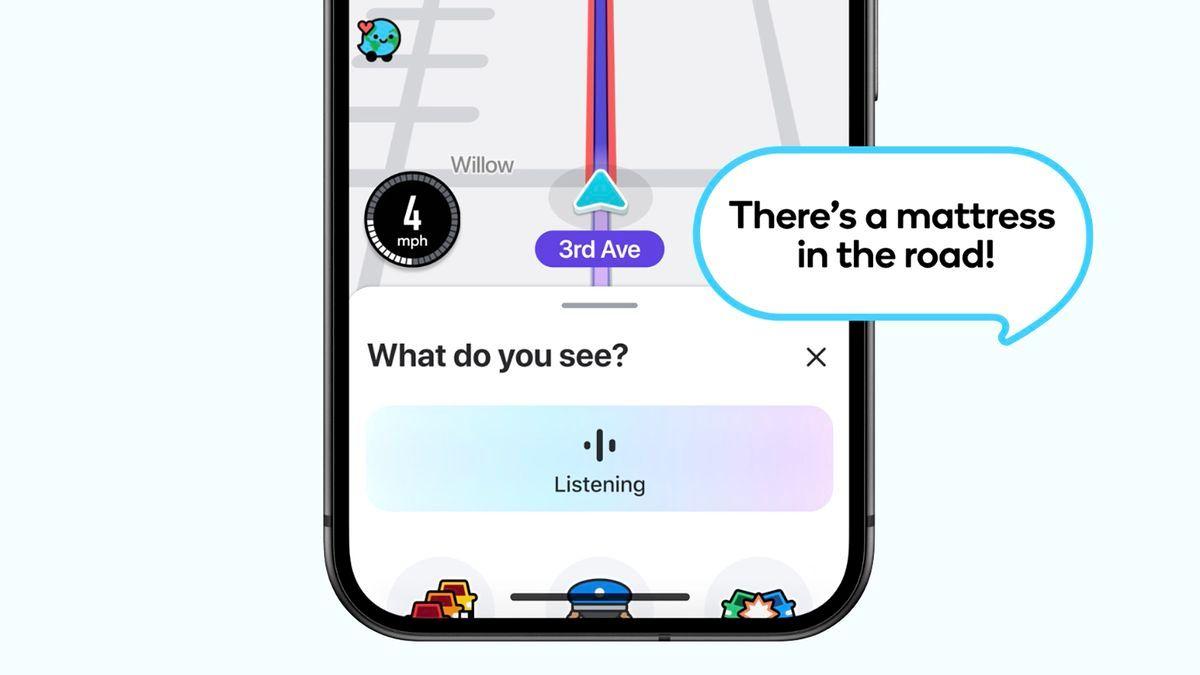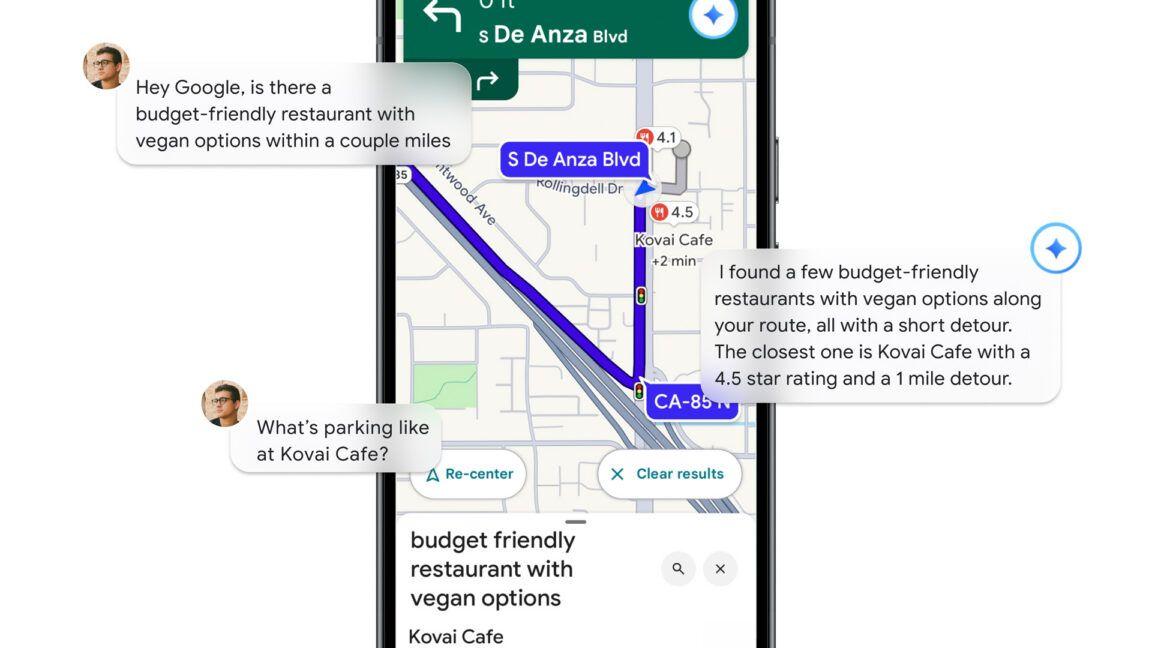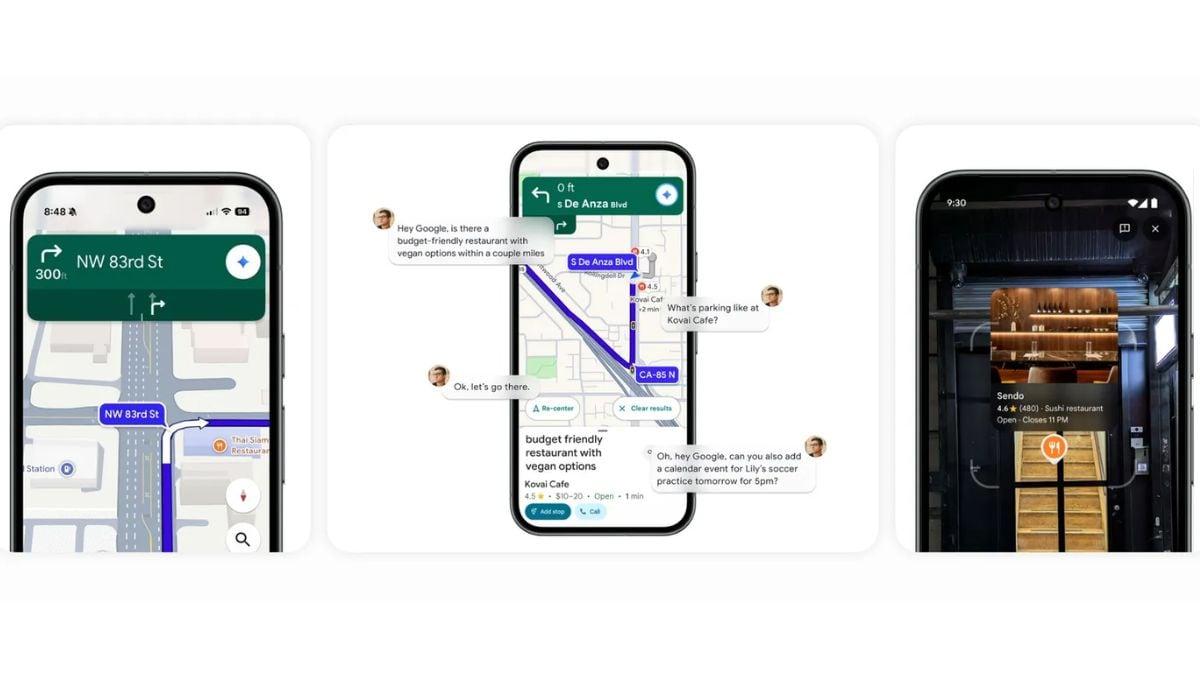Waze Introduces AI-Powered Voice Reporting for Road Incidents
3 Sources
3 Sources
[1]
Waze now lets you report hazards out loud
Waze just made it easier for drivers to report incidents en route, with a new tool that lets you flag hazards with your voice. Announced in a blog post by the Google-owned app on Thursday, Waze's new "Conversational Reporting" feature uses the company's AI model Gemini to allow you to vocally report things like traffic jams, construction, and random junk finding itself in the road. All you have to do is tap the app's reporting button and speak conversationally about the incident, and Gemini will instantly process this into a report. Whether you scream those details in a rage is up to you. According to Waze, the app could ask you follow up questions about the report, asking you to provide more details -- say, if a mattress is blocking traffic, you might want to specify. You can see how it functions in Waze's ad campaign video below, in which a cab driver reports construction using one tap and speaking aloud. The Conversational Reporting feature will be available for "Waze trusted testers" this week worldwide in beta on Android and iOS, and will be rolled out to more users in more languages other than English "in the coming months." It wasn't the only feature announced by Waze this week, with the company also adding the ability for users to mark school zones to the map -- a much requested feature. The feature, which will be available globally before the end of the year, also alerts other users to school zones through the app. It's another of a bunch of features added to Waze this year. The Waze updates dropped on the same day Google announced a handy new planning feature for Maps, which gives you the ability to ask the app questions that generate AI answers from Gemini. The days of AI-less map platforms are way behind us.
[2]
Waze will soon let you report incidents with your voice
Waze is testing a handy-sounding update that will let you report traffic incidents while speaking naturally. With the new feature, you can tap the app's reporting button and then say what you see, such as, "Looks like there's a traffic jam up ahead." The Google-owned driving app will then use the Gemini AI model to "understand" what you've said and create a report. If you make a vague report, like "There's something on the road," Waze might ask follow-up questions, like "Can you describe what you see?" Depending on your reply, the app will then use that information to categorize your report. You can currently only report incidents on Waze by tapping through options within the app, which isn't always convenient while you're driving. Waze will roll out voice reporting in beta to "trusted testers" on Android and iOS this week. It's only available in English for now, but Waze plans to expand it to more users and languages in the "coming months." Alongside this update, Waze will also start displaying school zones on the map globally later this year, alerting you to drive more safely in these areas.
[3]
Waze 'Conversational Reporting' lets you literally call out road incidents
Waze is adding an AI-powered "Conversational Reporting" feature for incidents and obstructions when using the navigation system. Building upon the crowd-sourced nature of the Waze application, you will soon be able to use voice commands and natural language to effectively tell the navigation system if there is an incident or obstruction while driving - or as a passenger. Instead of requiring extra screen taps and touches, this enhanced function allows you to focus on the road and describe what you see, such as "There is a mattress in the road" or "There is a traffic jam up ahead." Waze may ask follow-up questions if more information is required or specific details are needed, such as "Can you describe what you see?" To initiate, you will need to tap the "reporting" button and then start talking naturally. AI can understand context and natural language so that specific phrases you might forget are not required. Once accepted, Waze will use the data from "Conversational Reporting" data to populate real-time maps and inform other road users of the obstacle, obstruction, or incident. Conversational Reporting is being launched in beta on the Waze app for Android and iOS globally. However, it is only available in English. A wider range of language support for the feature is expected in the "coming months." Waze is also adding live school zones to maps with the ability for users to edit or alter these areas. When driving near or through a school zone, you will be given extra cues to help ensure the safety of pedestrains and other road users. This feature will begin rolling out on Android and iOS "later this year."
Share
Share
Copy Link
Waze, the Google-owned navigation app, is rolling out a new AI-powered feature called "Conversational Reporting" that allows users to report road incidents using natural language voice commands.

Waze Introduces AI-Powered Voice Reporting
Waze, the popular navigation app owned by Google, is set to revolutionize how drivers report road incidents with its new "Conversational Reporting" feature. This AI-powered tool allows users to report hazards, traffic jams, and other road issues using natural language voice commands
1
.How It Works
The new feature utilizes Google's Gemini AI model to process spoken reports from drivers. Users can simply tap the app's reporting button and describe the incident they're witnessing in their own words. For example, a driver might say, "There's a traffic jam up ahead" or "I see a mattress blocking the road"
2
.If more information is needed, Waze may ask follow-up questions to gather additional details about the reported incident. This conversational approach aims to make reporting more intuitive and less distracting for drivers
3
.Rollout and Availability
The Conversational Reporting feature is currently being tested by "Waze trusted testers" worldwide in beta on both Android and iOS platforms. Initially available only in English, Waze plans to expand the feature to more users and languages in the coming months
1
.Additional Features
Alongside the voice reporting update, Waze is introducing another significant feature: the ability to mark and display school zones on the map. This globally available feature, set to roll out before the end of the year, will alert drivers when they're approaching or driving through school zones, promoting safer driving in these areas
2
.Impact on User Experience
The introduction of voice reporting addresses a long-standing challenge for Waze users who previously had to navigate through multiple taps and options to report incidents while driving. By allowing drivers to report issues verbally, Waze aims to enhance safety and convenience, keeping drivers' focus on the road
3
.Related Stories
AI in Navigation Apps
This update highlights the growing integration of AI technologies in navigation and mapping applications. On the same day as Waze's announcement, Google Maps revealed a new planning feature that uses Gemini to generate AI answers to user questions, further demonstrating the shift towards AI-enhanced map platforms
1
.Future Implications
As Waze continues to innovate with AI-powered features, it sets a new standard for user interaction in navigation apps. The Conversational Reporting feature not only improves the user experience but also has the potential to enhance the accuracy and timeliness of road incident reports, benefiting the entire Waze community.
References
Summarized by
Navi
[1]
Related Stories
Recent Highlights
1
Google Gemini 3.1 Pro doubles reasoning score, beats rivals in key AI benchmarks
Technology

2
Meta strikes up to $100 billion AI chips deal with AMD, could acquire 10% stake in chipmaker
Technology

3
Pentagon threatens Anthropic with supply chain risk label over AI safeguards for military use
Policy and Regulation








